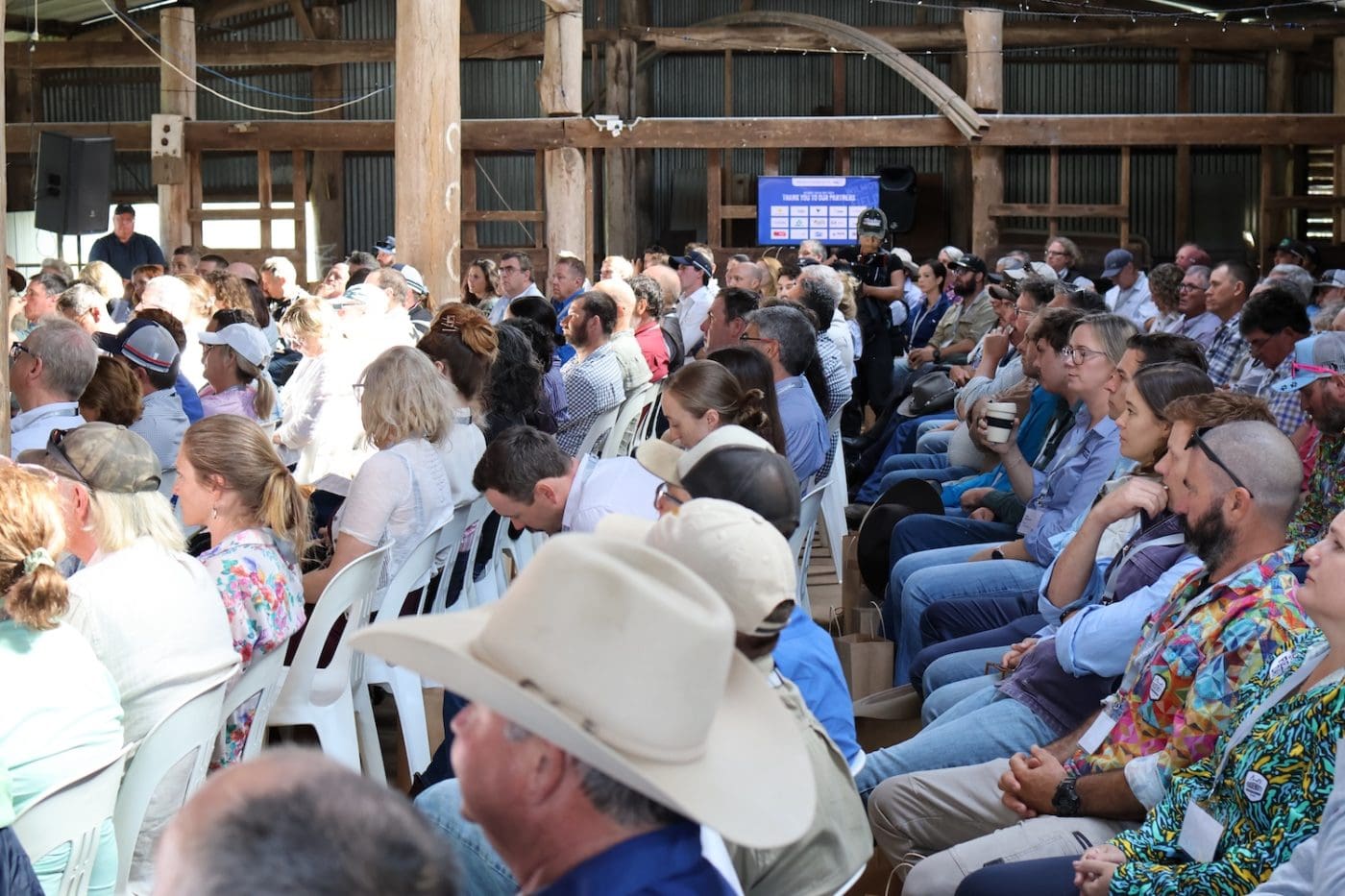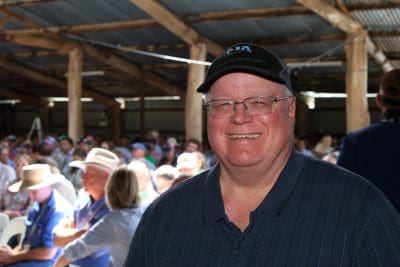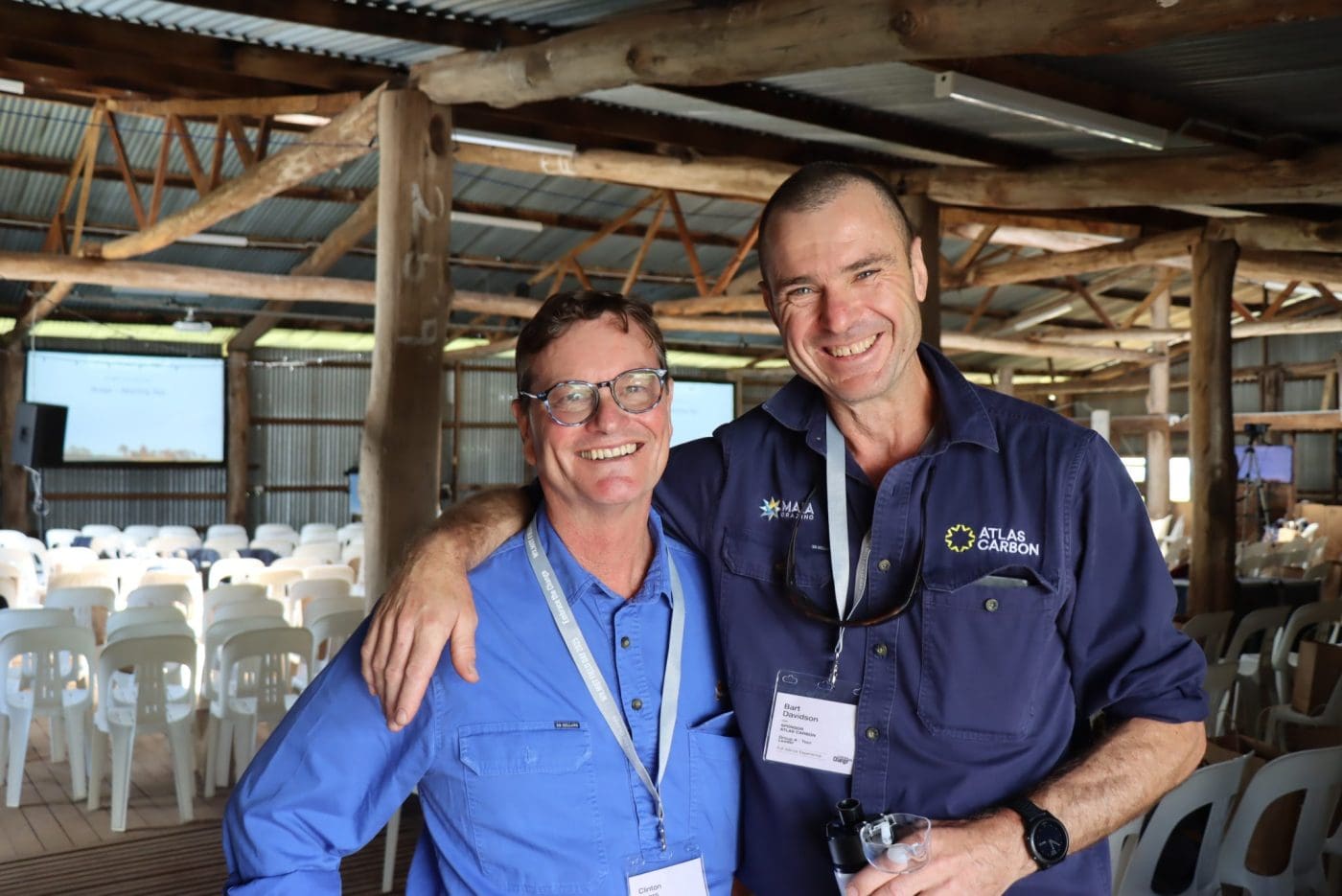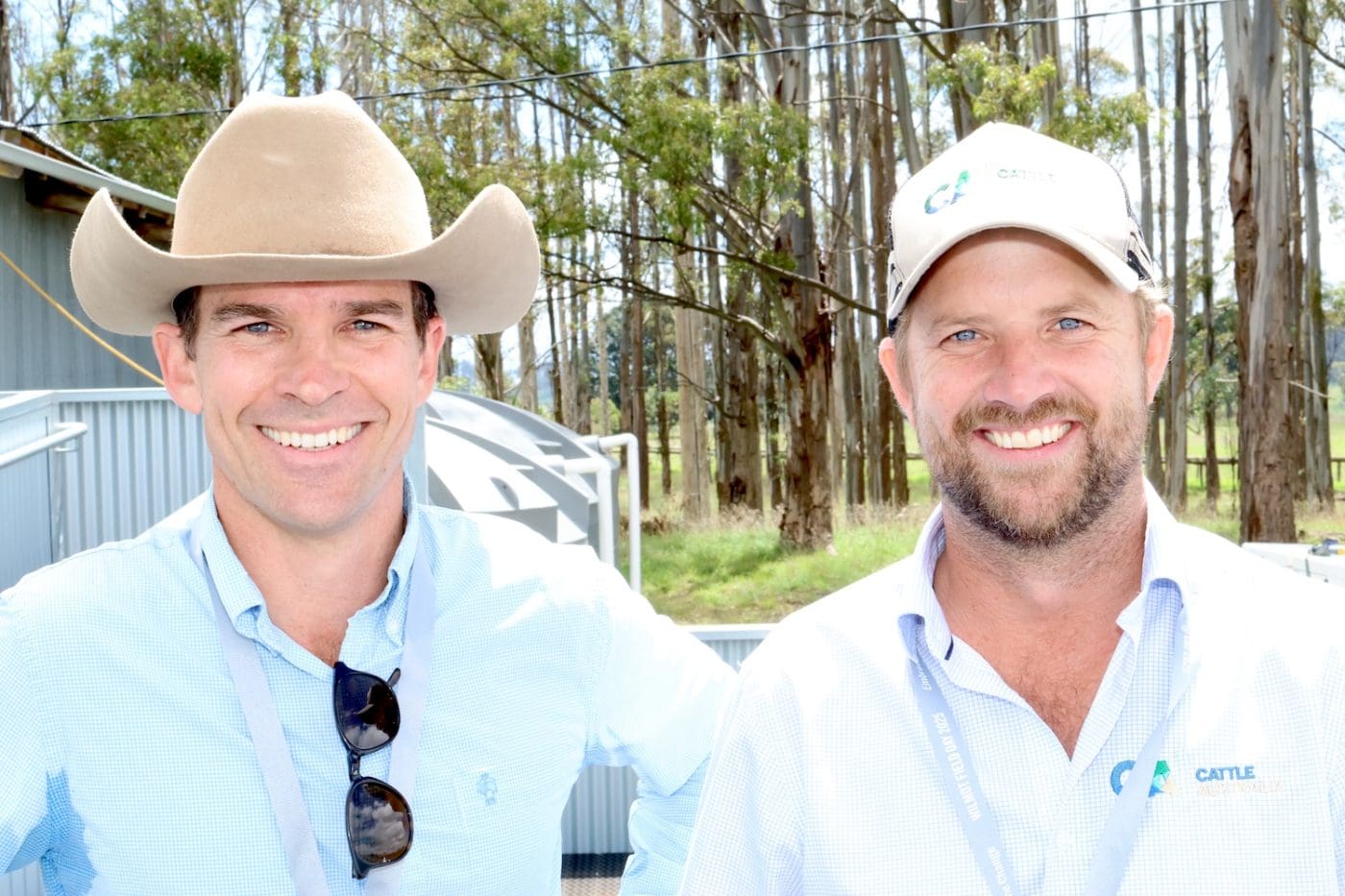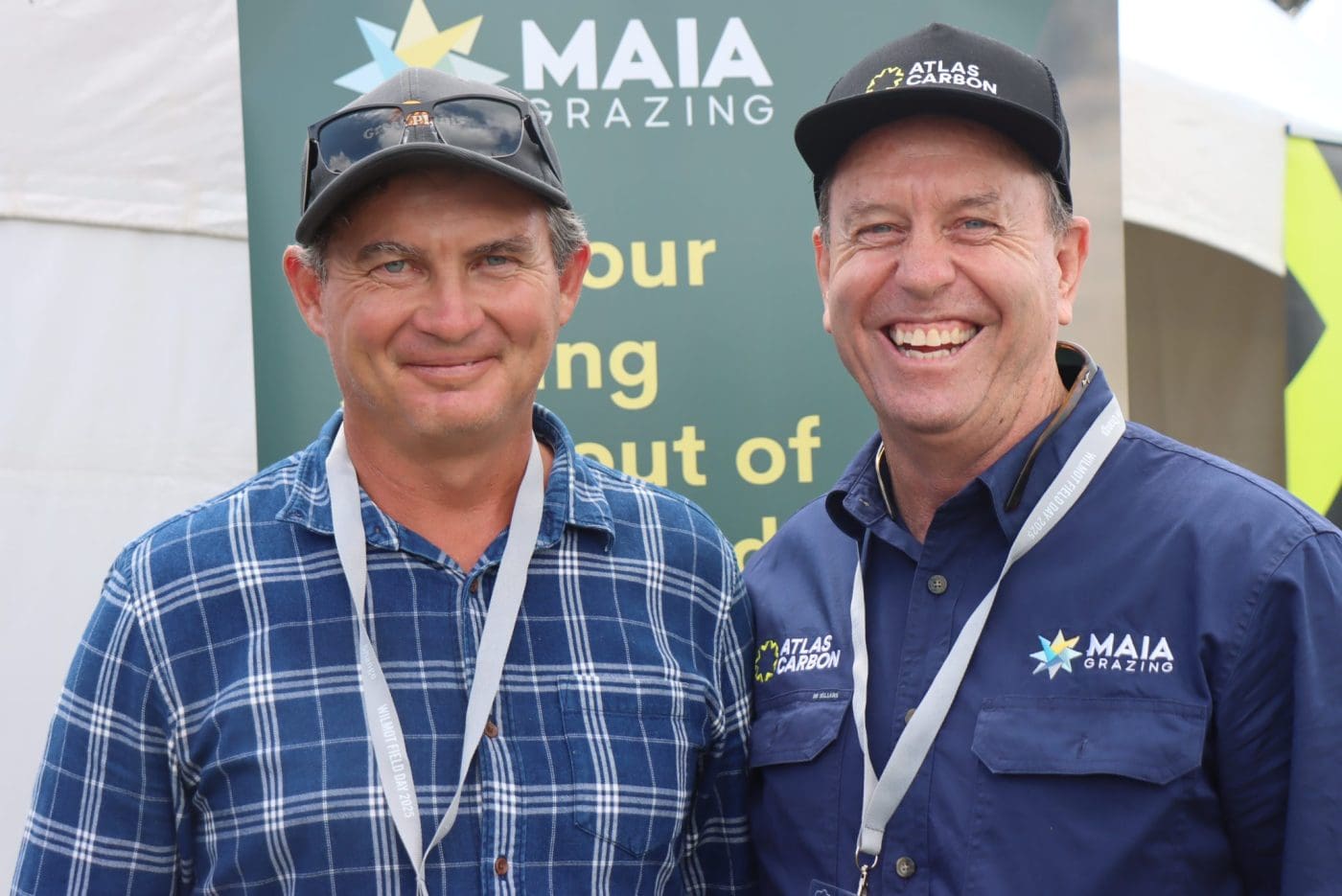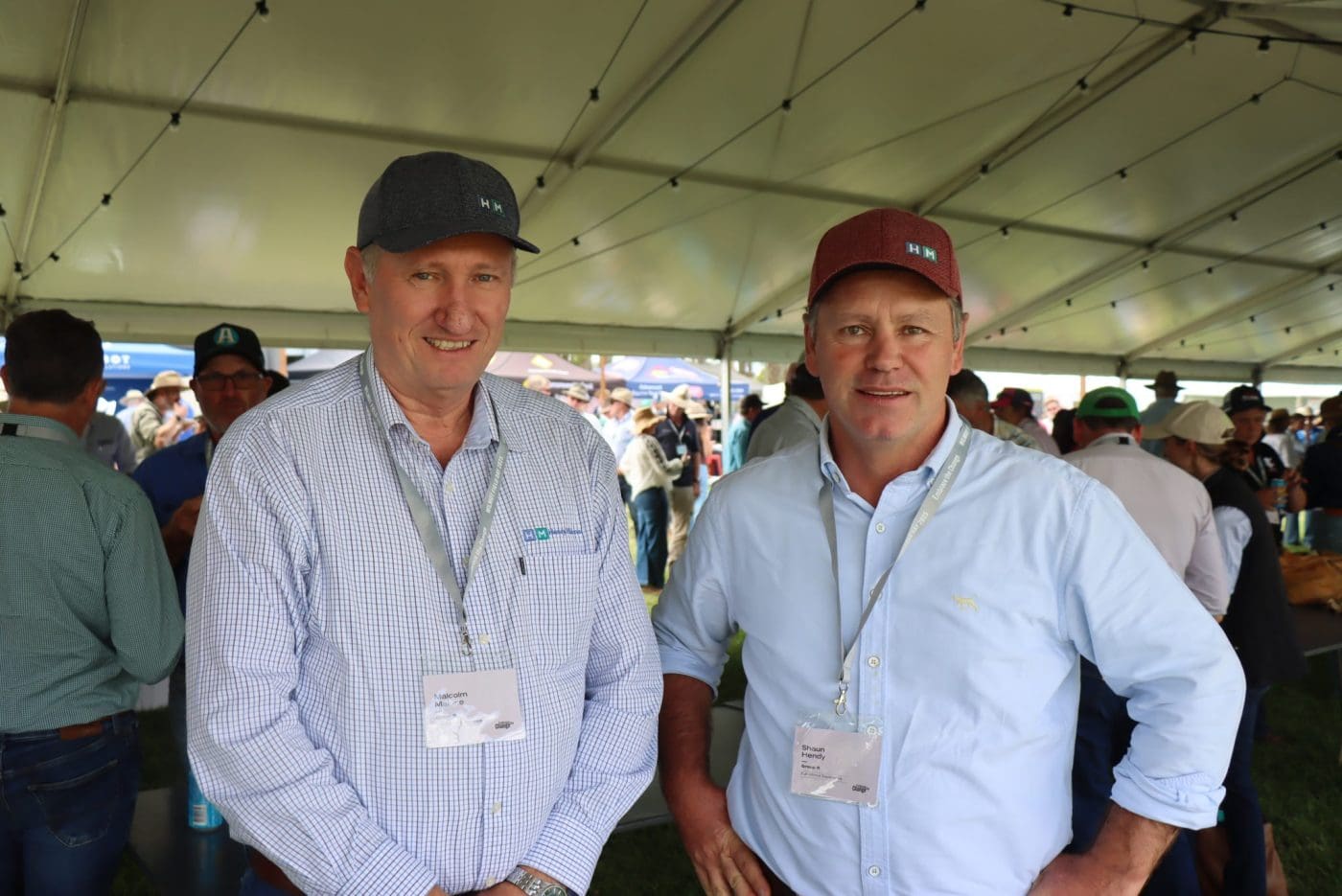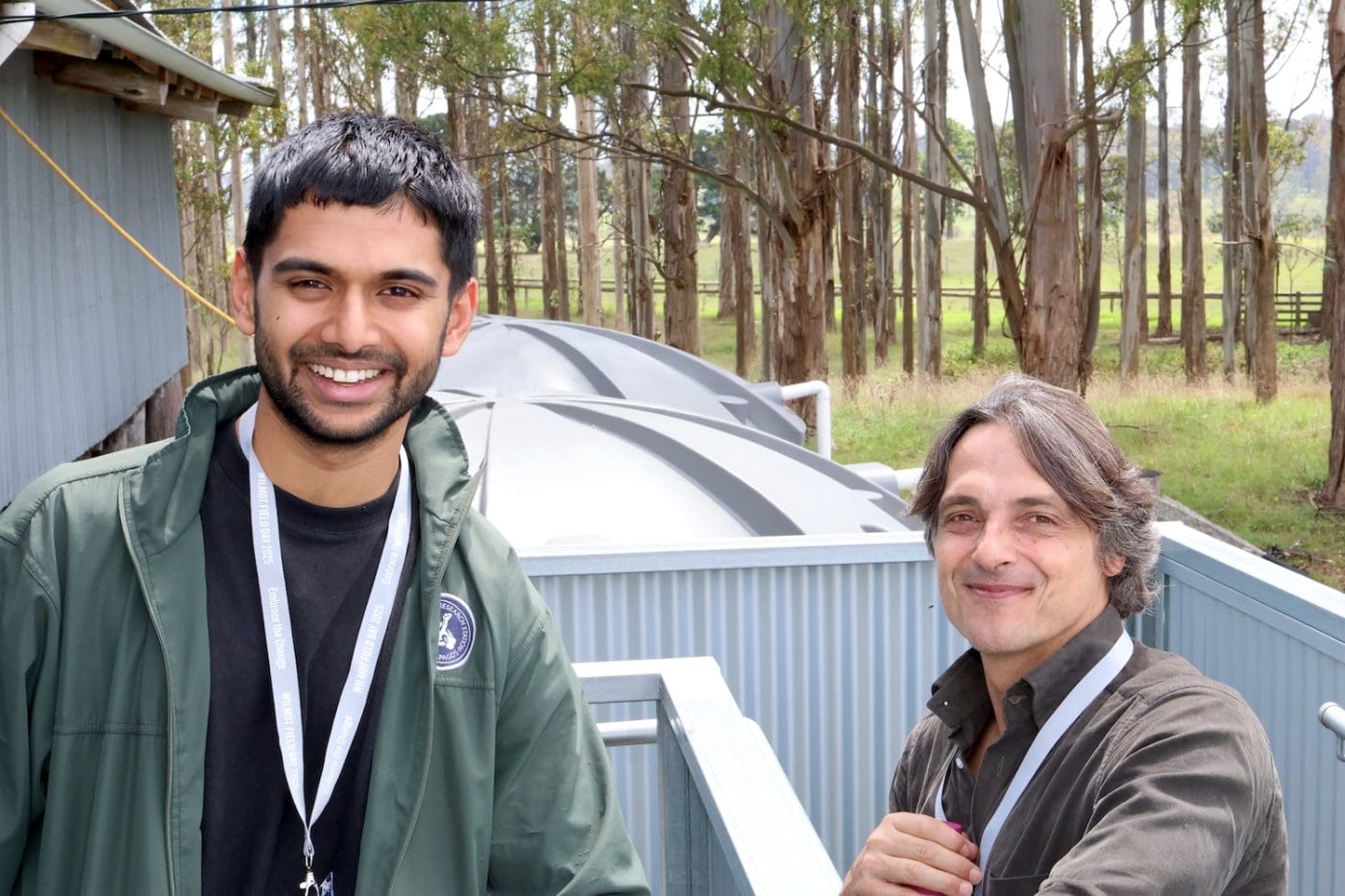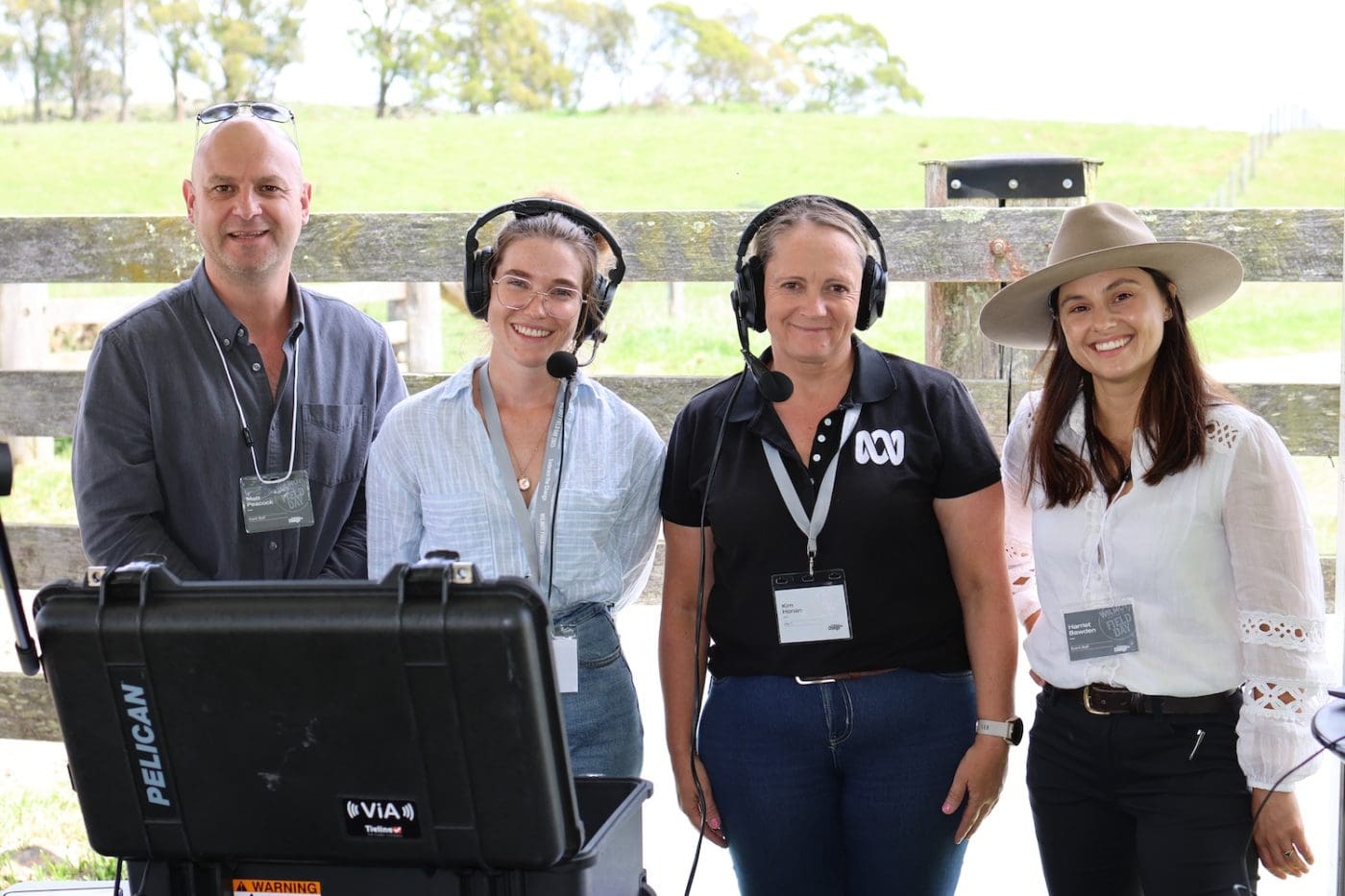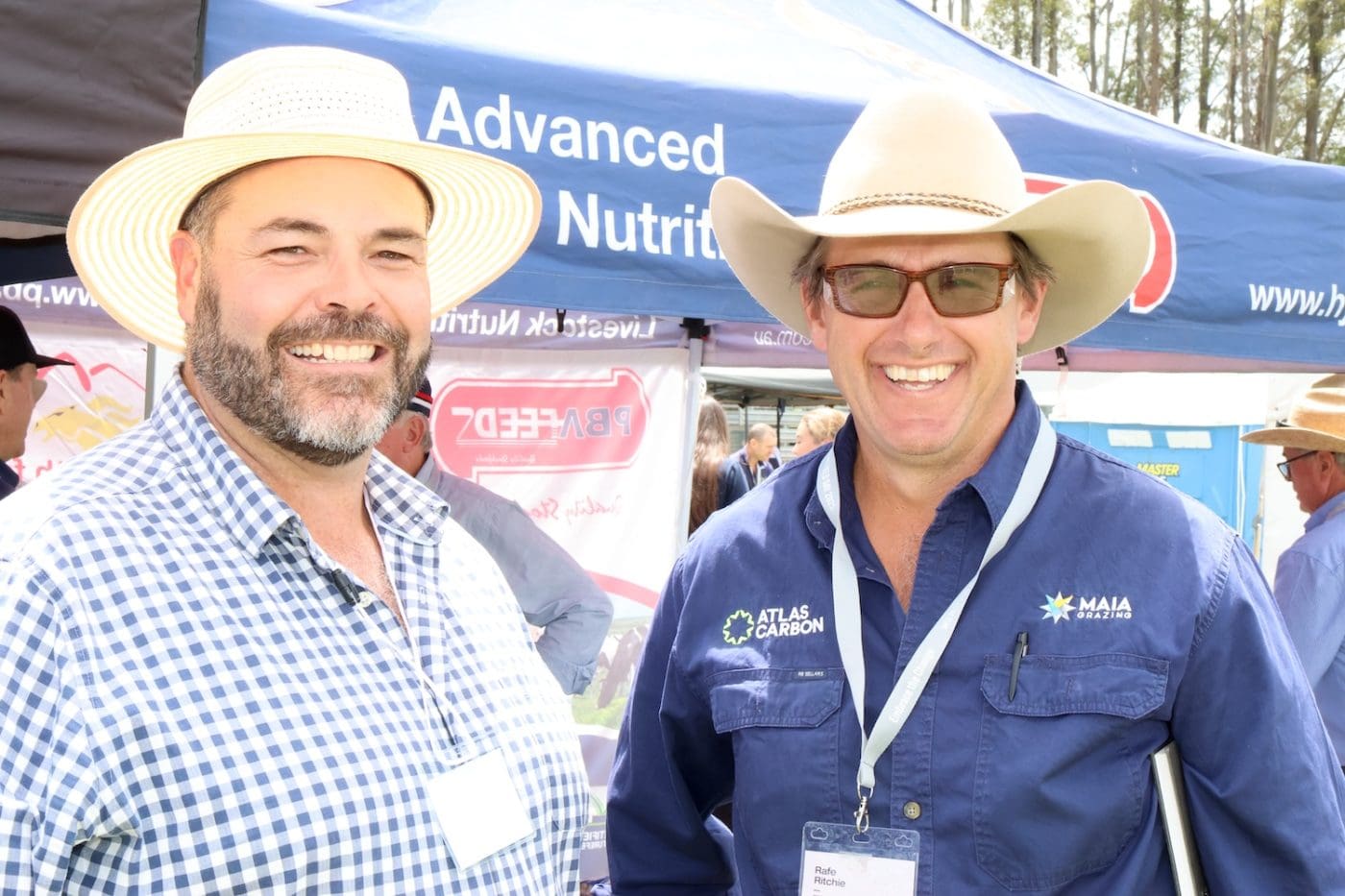The annual Wilmot field day is in its seventh year but this year’s regenerative agriculture focused event is the biggest yet, with a sell-out crowd of more than 400 cattle producers and carbon stakeholders – 58 percent of whom are first-time visitors – attending this morning’s opening sessions at the scenic northern NSW property.
The strong interest reflects exploding popularity in regenerative agriculture globally, key note speaker Gabe Brown, a US rancher and a pioneer of the soil health movement, told the standing-room only audience in the Wilmot shearing shed.
“I’ve been in this space for 30 plus years. It seems like it’s taken forever, but the last last three years we have had more interest in regenerative agriculture than we did in the previous 22 years.
“And in the last year we’ve had more interest than the previous year. It is compounding exponentially.”
Mr Brown, whose North Dakota ranch receives more than 2000 visitors annually, emphasised in his key note address that soil health is a reflection of a farmer’s stewardship and provided graphic real world examples of how management can reverse desertification and improve soil health – Beef Central will report more on his address in coming days.
The Wilmot field day is now the largest on-farm event of its type in Australia.
Opening this morning’s event, Macdoch Group executive chair Alasdair MacLeod said it was becoming “more and more expensive to farm in the way that we used to farm – investing in expensive seeds and other inputs, depleting our soils and generally being too focussed on productivity, whatever the cost.”
“Which, incidentally, makes me a bit nervous about the relentless focus of the NFF on their $100Bn productivity target. This shouldn’t be our focus, our focus should be on profit, particularly profit that can be sustained through the cycles of markets and climate.
“We think that to maximise profits, you need to be allowing nature to do as much of the work as possible, After all, nature, so long as you work with her, will provide productivity services to your farm for free, so why not take advantage of this?”
There were now opportunities to monetise investment in natural capital through pathways such as carbon projects or still-in-development ecosystem markets, such as the nature report market.
Food grown in more natural systems also provided nutritional benefits that society desperately needed to address growing health challenges, he said.
He also drew attention to a recent “push back from Big Ag”, highlighted by recent articles in the New York Times and Washington Post promoting the benefits of more industrial ag to create efficiency of production.
“Make no mistake, Big Ag is concerned and is trying hard to work out how they can get ahead of this emerging demand for more natural products, grown more naturally.”
Carbon markets were also coming under increasing attack from “those who hate the ideas of an emissions offset, believing this gives fossil fuel companies a license to pollute”.
“Well, all I know is that we continue to put plenty of CO2 into the atmosphere and we will continue to do so for some time, so what’s wrong with finding ways of putting some of that CO2 back into the landscape, in soils or vegetation, and rewarding farmers for doing so?”
“There is a belief that, one day, technology will solve this “carbon removal” challenge, and it may well do so in the future, but in the meantime , why not harness this technology that’s been around for millennia, called photosynthesis, that nature provides for free?”
He added that “time is not on our side here” – “we’ve already breached the 1.5C increase in global temperature that was the limit agreed at the Paris COP in 2015, so we can’t afford to wait too long for new technologies to provide the necessary solutions”.
“Here in Australia, we have some of the most robust methodologies for carbon projects anywhere in the world and with the Safeguard Mechanism legislation driving demand for carbon offsets, I hope that Australia can show how to do this the right way.
“Yes, we need to ensure that our methodologies remain fit for purpose and the Chubb review in 2022 made significant recommendations to ensure this remains the case , and the Clean Energy Regulator will provide scrutiny into the future, so we can have great confidence in our existing framework.”
Macdoch comprises a group of Australian businesses working to show how a resilient agricultural sector builds natural capital and contributes to global climate solutions.
He is also Chair of the not-for-profit Soils for Life which aims to encourage the adoption of regenerative farming, and the Macdoch Foundation, a philanthropic organisation looking to build resilience in people and the planet and the instigator of, “Farming for the Future”, a project seeking to show how investment in on-farm natural capital is linked to farm profitability.
More stories from the 2025 Wilmot field day to come. See below pictures of some of the attendees who travelled to Ebor, NSW, for this year’s event.

